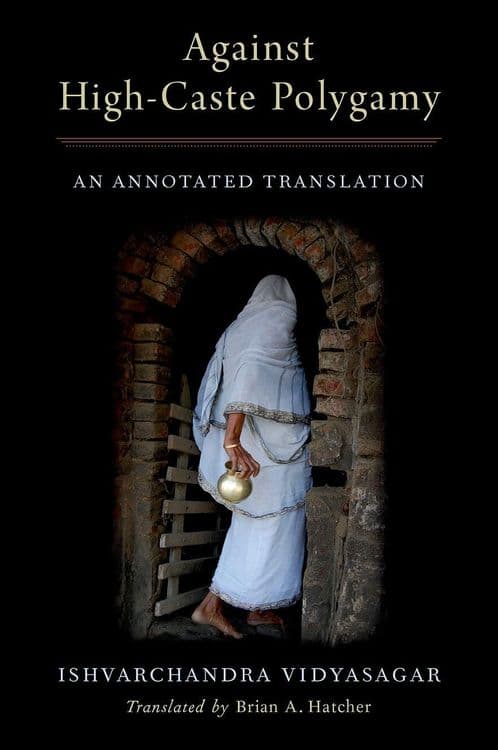Against High-Caste Polygamy: An Annotated Translation (Oxford UP, 2023) offers a complete, annotated translation of Ishvarchandra Vidyasagar's 1871 tract arguing against the practice of high-caste Kulin marriage in Bengal. Vidyasagar published this work fifteen years after passage of the Hindu Widow's Remarriage Act, which owed so much to his earlier reform leadership. However, in the wake of the Rebellion of 1857 British and Indian attitudes toward official intervention in customary practices underwent a sea change.The British were increasingly reluctant to create unrest, while many Indian leaders began to question the legitimacy of seeking government assistance for social change. The age of active collaboration between the British officials and Indian reformers had passed. In Against High-Caste Polygamy, Vidyasagar demonstrates both his continued faith in an earlier approach to reform and his frustration at the new tenor of the times.
Against High-Caste Polygamy is not a treatise on polygamy in general. Rather, it addresses a subset of polygamous marriage as practiced among the highest Hindu castes in eastern India, or what then constituted the Bengal Presidency of British India. This particular form of polygamy came to be known in English as Kulinism, from the term for a person who holds high clan rank (known in Bengali as a kulina). As Vidyasagar shows, Kulinism rests on a highly articulated and historically entrenched system of status and rank that trapped women in wretched domestic situations. Against High-Caste Polygamy is Vidysagar's attempt to open the eyes of Bengali readers as well as the government to the extent and dire ramifications of polygamous practices that often left women ostracized, neglected, and abused. Brian A. Hatcher's translation makes Vidyasagar's polemic available to English-language readers for the first time. It features a scholarly introduction, extensive notes, and a variety of supplementary critical tools.
Raj Balkaran is a scholar of Sanskrit narrative texts. He teaches at the Oxford Centre for Hindu Studies and at his own virtual School of Indian Wisdom. For information see rajbalkaran.com.

